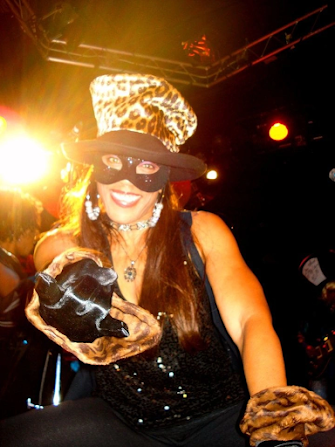The Funk Queen: Dawn Silva. An Autobiography
New Rising Publishing. 2023. $99.00. 532 pages.
In this massive 500-plus page-turner, singer, songwriter, producer, turned author, Dawn Silva, best known for her time as a singer, and performer with Sly and the Family Stone, Parliament-Funkadelic, the Brides of Funkenstein, and the Gap Band, tells her story of survival, overcoming and outshining at every stop on the underground railroad to the funk. While the book documents how she has earned the title of the Funk Queen, it also contains a “Forrest Gump” trope where themes of prejudice, violence, and inequality over decades emerge as Silva engages historical figures of sports, politics, film, and music.
We learn about her life through hundreds of photos and wonderfully detailed anecdotes. Silva, the Sacramento, California-born artist, who was known for her charismatic performances onstage reveals herself as a skilled vocalist, vocal arranger, producer, and leader, who behind the scenes battled to receive equitable pay, recognition, and royalties. She had to fight (at times physically) her group members, band members, staff, record label executives, booking agents, and concert promoters, which some P-Funk fans will empathize with, others will find unbelievable, and many will pretend to ignore as their allegiance is not towards Ms. Silva or any of the females whose unheralded vocals helped elevate Parliament-Funkadelic from underground to mainstream.
According to memoirist and feminist, Vivian Gornick,
in nonfiction writing, “the writer has only the singular self to work
with. So, it is the other in oneself
that the writer must seek.” The writing works in this autobiography when the
narrator engages in a type of self-investigation of “one’s own frightened, or
cowardly or self-deceived part— (which helps) creates the dynamic.” In other
words, there is the situation but the emotional investment the writer and the
reader are looking for is found in the stories recorded in thorough detail over
these 51 chapters.
Full disclosure. Ms. Silva is someone that I have known for decades. However, after reading this book, I realized how little I knew about her family, their Indigenous roots, and the amount of violence she experienced at an early age, and throughout her life. I learned about the favor God graced her with—she lived to tell. She must have known that she would live a life worth writing about because she prepared to write this book by keeping a diary or journal and meticulously compiling clippings and photos.
If you believe in destiny and purpose, it is easy to conclude that she was born to travel worldwide as we read how her family moved to Germany when Silva was three. In several places in the book, we see how she quickly adapts and picks up the language, whether German as a child or Portuguese as an adult. This ability to adapt will be important to note as you read. These stories take us across North and South America and Europe.
The first part of the book reveals the singer’s family story--both the Taylor and Weber sides. The introduction to Dawn Carla Weber comes in the form of a beautiful black and white photo of Willy and Leora Taylor, her maternal grandparents. Like photos from the past, this one is ghostly and beautiful. The closing features a photo of the triumphant Silva, onstage as the show-stealing special guest act at the 2009 Long Beach Funk Festival.
This notion of an underground railroad to the funk is not what this book is about; instead, it is about the battle to bring to light the real-life story of one of Funk music’s pioneers and the truth about how the unsung workers–those women whose names were not included at P-Funk’s 1997 Rock and Roll Hall of Fame Induction–were treated. This is accomplished through Forrest Gump-type anecdotes which place Ms. Silva in the company of who’s who during the 1970s and beyond.
Aside from the treasure trove of photos, the majority of which photographer, Steven LaBelle provides, the writer here questions her choices and does not make excuses for them, she offers reasons. Today’s young people know nothing about the past. The Funk Queen could allow college students to analyze the African American experience in the United States from the 1970s to 2000s in Popular Culture, Composition, and Rhetoric, as well as Feminist and Womanist (the focus on black women) Theory courses.
Serious musicologists should include this volume in their collections. This is also a must-have for music aficionados who either grew up in the glory days of vinyl recordings and the black self-contained group or are curious about what happened to them. But is also for any woman interested in the music industry as it is a cautionary tale which you must read.
Photos courtesy of dawnsilva.com.
Charlotte Morgan is a journalist, writer, and educator based in Cleveland, Ohio. She worked during the late 1970s as a music journalist for Northeast Ohio Scene Magazine and nationally for Rock and Soul Songs.




No comments:
Post a Comment